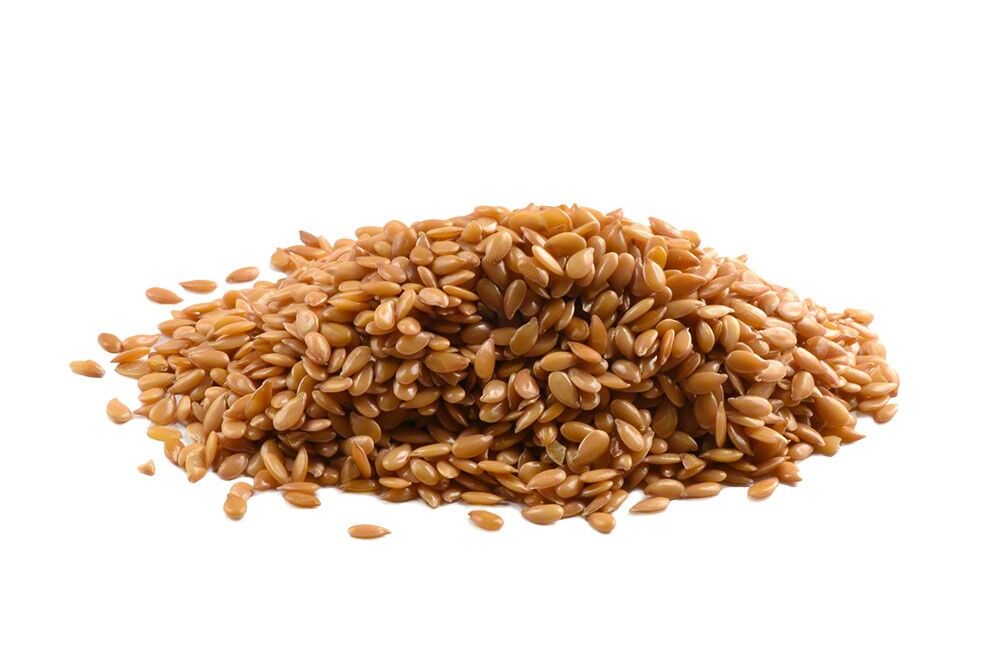- No products in the cart.
Flax Seed
RetailWholesale
Brown flax seed have an earthy flavor with a hint of nutty undertones. Although small in size, these crunchy tidbits have multiple health benefits. They have an appealing subtleness and can be included in your breakfast cereal or smoothie, added to main dish or side recipes, used as a topping for salads or incorporated into a variety of baked goods.
SKU: 10522 Categories: Cooking & Baking, Superfoods
Health Benefits of Brown Flax Seeds
The term superfood is associated with foods that are exceptionally beneficial to your health. Brown flax seed earns a spot in the superfood category because they provide support to the heart, digestive system, bones, skin, hair and eyes. Flax seed can be a beneficial part of a weight loss plan. They help reduce the risk of cancer, especially breast, ovarian, prostate and colon cancer. They also help maintain an acceptable blood pressure and cholesterol and are beneficial to a diabetic diet.
Flavorful, nutritionally-dense, extremely versatile brown flax seed can be a valuable part of a health-conscious diet, weight loss plan, low carbohydrate diet or diabetic diet.
Fiber is an important component of any diet. It provides support to the digestive system, and intestinal tract. Flax seed contains high levels of mucilage which is a gel-forming fiber that is beneficial to the intestinal tract. Adding flax seed to your diet can be beneficial to your hair, nails and skin. Flaxseed is an excellent source of antioxidants. Antioxidants are essential to anti-aging, hormone balance and healthy cells. They also play a vital role in helping ward off colds and flu. Flaxseeds can be a beneficial part of a heart-healthy diet. They can promote good cholesterol, reduce blood pressure and reduce inflammation. Buying bulk flax seed is a convenient way to have this beneficial superfood on hand to incorporate into your daily diet.
Omega 3 in Flax Seed
An omega 3 known as alpha-linolenic acid or ALA is a necessary acid that our body can’t make on its own. To acquire the health benefits of ALA, you must include foods in your diet that are a source of this important Omega 3. Flax seed is an excellent source and is an easy food to incorporate into your diet. The omega 3 in flax seed can provide energy, give support to the immune system and nervous system and promote heart health. Omega 3 fatty acids play a vital role in reducing the risk of stroke.
Flaxseed Uses
When you find brown flax seed for sale, you may be inclined to purchase it in bulk amounts because of its nutritional value and versatility. If you do that, it’s essential that you store the seed properly. Due to its high concentration of fatty acids, flaxseed can spoil quickly if not stored in the refrigerator or freezer. Flaxseed must be consumed in a ground state in order to acquire the nutritional benefits associated with it. You can purchase whole flax seed and grind the seed in a coffee grinder to get the amount you need for a recipe. Flax seed can be mixed into oatmeal, yogurt, cereal or a smoothie. You can mix ground flaxseed into a muffin mix, cookie dough, various types of batter such as pancake batter or cake batter. Flaxseed has a nutty flavor. However, the nutty flavor is typically undetectable when the ground seed is incorporated into sweet baked goods. Flaxseed can be added to meatloaf, casserole, spaghetti sauce or other main dish recipes. Ground flax seed can also be used in the breading for meats and vegetables.
Side Effects
Many times, when side effects occur with flaxseed it is due to the consumption of a large amount of the seed. Stomachache, bloating and gas may occur when the consumption amount is too excessive for your system. There are some other side effects related to flaxseed that you need to be aware of. Flaxseed may have estrogen-like effects that can cause a change in menstruation. Flaxseed should not be included in your diet if you have bleeding disorders or take blood-thinning medication. Flaxseed is not recommended for people with bipolar disorder.
Ingredients
Flax Seeds.
Product of Canada.
Storage and Shelf Life
Store in a cool, dry place.
Shelf life: bags – up to 1 year.
Bulk – up to 6 months.
Allergen Information
Manufactured on shared equipment with peanuts, soybeans, tree nuts, milk, eggs, wheat and whey.
| Quantity | Unit Price |
|---|---|
| 1 - 2 | $2.29 |
| 3 - 5 | $2.22 |
| 6 - * | $2.15 |
| *Price and point adjustments will be reflected in the cart. | |
| Quantity | Unit Price |
|---|---|
| 1 - 5 | $44.75 |
| 6 - 10 | $43.50 |
| 11 - * | $42.00 |
| *Price and point adjustments will be reflected in the cart. | |
